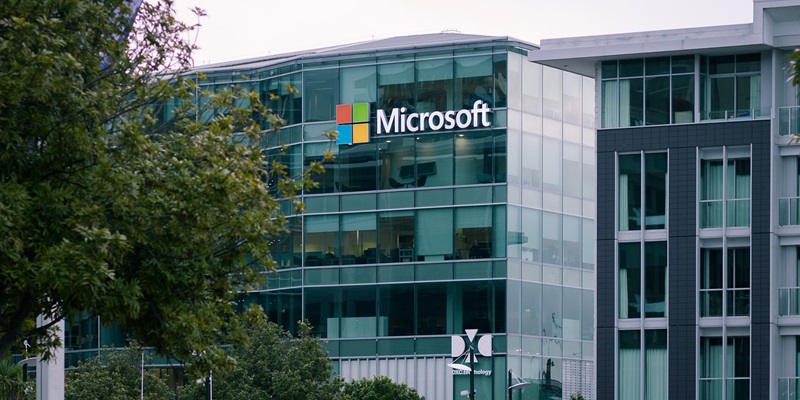Microsoft’s recent decision to cut its diversity, equity, and inclusion (DEI) workforce marks a notable shift in corporate priorities, reflecting a broader trend in the tech industry where companies are reevaluating and reducing their DEI commitments. Set against the backdrop of broader layoffs within the company, Microsoft’s move underscores a strategic pivot towards business impacts and financial efficiency. The decision resonates with similar actions taken by other major corporations, such as Twitter/X, Meta, and Amazon, which have also significantly trimmed their DEI teams. This collective retrenchment hints at an industry-wide reorientation, driven by economic pressures and shifting business priorities, away from the extensive DEI initiatives that gained momentum during a time of heightened focus on social justice and workplace inclusion.
These actions are not happening in a vacuum. The retreat from DEI efforts among such influential companies raises valid concerns about the long-term sustainability of diversity and inclusion in the workplace. Companies are increasingly prioritizing efficiency and cost-cutting over DEI commitments, signaling a move towards more traditional business objectives. This shift has triggered criticism and backlash from DEI advocates who argue that such measures could potentially reverse the progress made in fostering inclusive and equitable workplaces. Critics also highlight the potential negative impacts on employee morale, company culture, and the public perception of these organizations’ values. This nuanced narrative captures the complex and often contentious balancing act companies must navigate between economic exigencies and promoting diversity and inclusion.
The Growing Trend
Tech giants like Microsoft, Twitter/X, Meta, and Amazon scaling back their DEI initiatives suggest not just isolated business decisions but a growing trend that might redefine corporate strategies across various sectors. In the past few years, these companies made substantial commitments to advancing DEI within their organizations, prompted by societal movements and the ever-growing call for more inclusive workplaces. However, as economic pressures mount and the demand for fiscal conservatism intensifies, these same companies are reassessing and realigning their focus, often at the expense of DEI programs. Layoffs and departmental cutbacks are increasingly justified as necessary steps to maintain competitiveness in a challenging economic climate.
This shift becomes even more apparent when examining the broader labor market and corporate landscape. Companies are facing unprecedented challenges, such as supply chain disruptions, inflation, and a highly competitive market that necessitates streamlined operations. In this context, DEI initiatives, once deemed essential for fostering a positive company culture and addressing social inequalities, are often viewed as expendable. This reallocation of resources away from DEI programs towards core business functions reflects a pragmatic approach to sustaining growth and profitability. Yet, such decisions are fraught with the risk of alienating employees and customers who value diversity and inclusion as fundamental components of a business’s ethical framework.
Implications and Concerns
The implications of scaling back DEI efforts extend beyond immediate business metrics, touching upon the very fabric of corporate culture and societal values. A notable concern is the potential backsliding in the progress made toward creating inclusive workplaces. DEI advocates argue that diversity and inclusion are not just moral imperatives but also critical to innovation and business success. A diverse workforce brings varied perspectives and solutions, leading to more vibrant and adaptive organizations. Cutting back on these initiatives might inadvertently stifle the very innovation that tech companies strive for, thereby affecting long-term business outcomes.
Moreover, the reductions in DEI teams can have tangible effects on employee morale and retention. Employees may perceive these cutbacks as a signal that their company does not prioritize creating an inclusive environment, which can erode trust and loyalty. This sentiment is especially pronounced among minority employees who may feel disproportionately impacted by such decisions. Additionally, companies that scale back DEI efforts risk damaging their brand reputation. In an age where consumers and employees are increasingly socially conscious, companies perceived as neglecting their DEI commitments could face public backlash and even boycotts.
Balancing Act
Microsoft’s recent move to reduce its diversity, equity, and inclusion (DEI) workforce signals a significant change in corporate priorities, mirroring a wider trend in the tech industry that sees firms reassessing and cutting back on DEI commitments. This action is set against a broader backdrop of layoffs within the company, showcasing a strategic shift towards optimizing business performance and financial efficiency. Other major companies, including Twitter/X, Meta, and Amazon, have similarly downsized their DEI teams, suggesting an industry-wide shift influenced by economic pressures and changing business goals. This movement contrasts with the earlier surge in DEI initiatives during heightened social justice awareness and pushes for workplace inclusivity.
These decisions happen within a larger context and raise concerns about sustaining diversity and inclusion efforts long-term. With efficiency and cost-cutting becoming top priorities, DEI advocates worry this shift might undo advancements in creating inclusive workplaces. Critics warn of potential negative effects on employee morale, company culture, and public image. This situation underscores the complex balancing act companies face between economic demands and the commitment to promoting diversity and inclusion.

